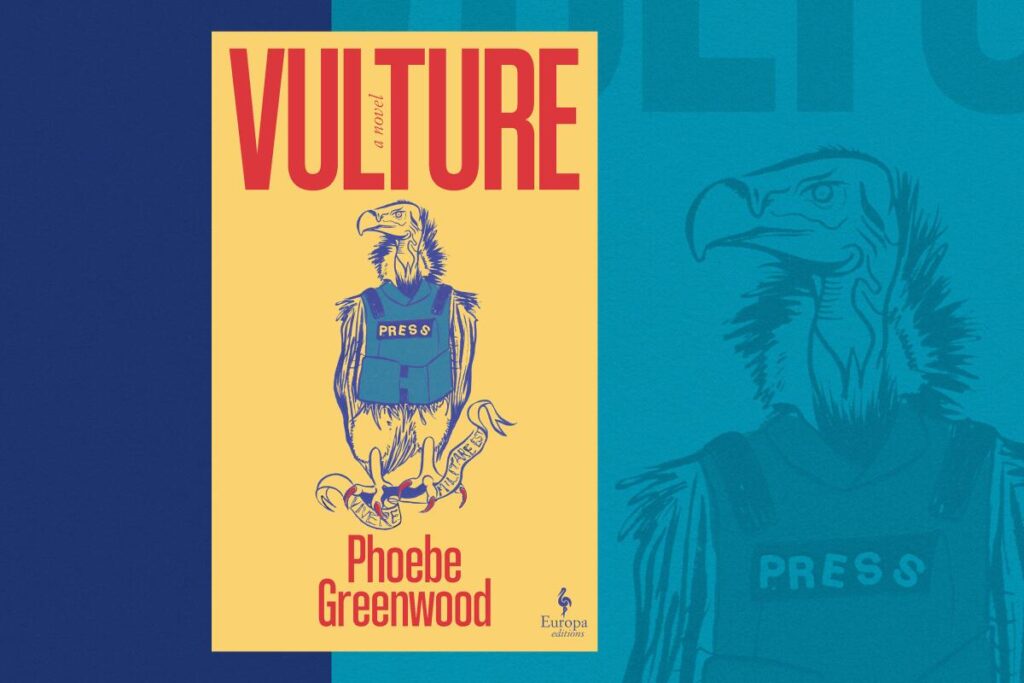
UPDATE: The highly anticipated novel “Vulture” by British journalist Phoebe Greenwood has just hit the shelves, delivering a biting satire on the Gaza War. Set against the backdrop of the 2012 Gaza conflict, this provocative debut explores the perils of ambition and the moral complexities of journalism in war zones.
The story follows Sara Byrne, a 33-year-old freelance reporter for the fictional London Tribune, who seeks a career-defining scoop in the tumultuous landscape of Gaza. Her journey reveals a darkly comic and emotionally charged narrative that challenges readers to confront the uncomfortable truths of war and journalism.
Sara, a self-proclaimed nepo baby, finds herself ensconced in the luxurious Beach Hotel, where foreign correspondents mingle amidst the chaos of conflict. As the war escalates, she quickly discovers the emotional toll it takes on her psyche. Her quest for a sensational story takes a harrowing turn when she becomes embroiled in a tragedy at the hotel’s restaurant, which is bombed, leaving her grappling with guilt and horror.
In a shocking twist, Sara’s pursuit of a deeper story leads her to partner with a dubious fixer, Fadi, who promises access to the underground world of Hamas. Her reckless ambition pushes her to offer $1,000 for an excursion into the “terror tunnels,” risking everything for a headline that might elevate her status.
Greenwood does not shy away from graphic depictions of violence and loss. As Sara witnesses the aftermath of bombings, she reflects on the meaning of a “massacre,” questioning the worth of her pursuit of sensationalism amidst human suffering. The novel’s visceral imagery captures the horrors of war, making an indelible impact on readers.
Through a series of poignant flashbacks, Greenwood explores Sara’s troubled past, including her relationship with her father, a legendary foreign affairs writer, and her struggles with self-worth. The narrative becomes a profound examination of the psychological scars that accompany war reporting, forcing Sara to confront her own humanity.
The novel’s title, “Vulture,” serves as a powerful metaphor for journalists who thrive on conflict and tragedy. Greenwood’s critique is sharp and unyielding, illustrating the moral ambiguity faced by those who seek to profit from the suffering of others.
As readers dive into “Vulture,” they are invited to grapple with the ethical dilemmas of journalism in conflict zones and the personal demons that haunt those who cover them. Greenwood’s debut is a stark reminder that war may be hell, but it also offers a twisted opportunity for those who dare to exploit it.
This compelling novel is sure to spark conversations about the role of journalists in war and the complexities of human empathy. As the literary world buzzes with excitement over “Vulture,” it is clear that Greenwood’s work is not just a story—it’s a call to reflect on the responsibilities of those who illuminate the darkness of conflict.
Stay tuned for more updates and reactions as readers immerse themselves in this urgent, thought-provoking narrative.






